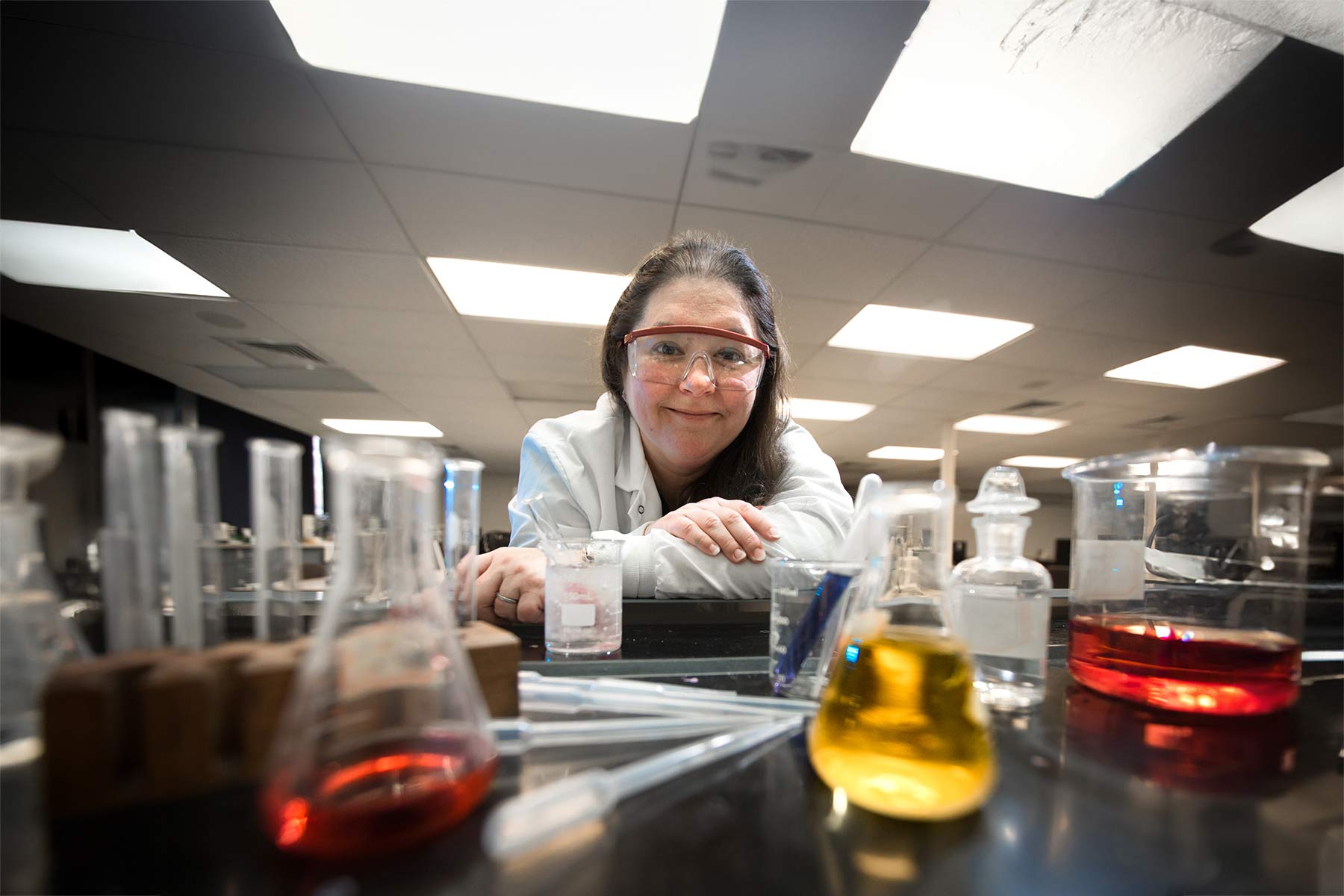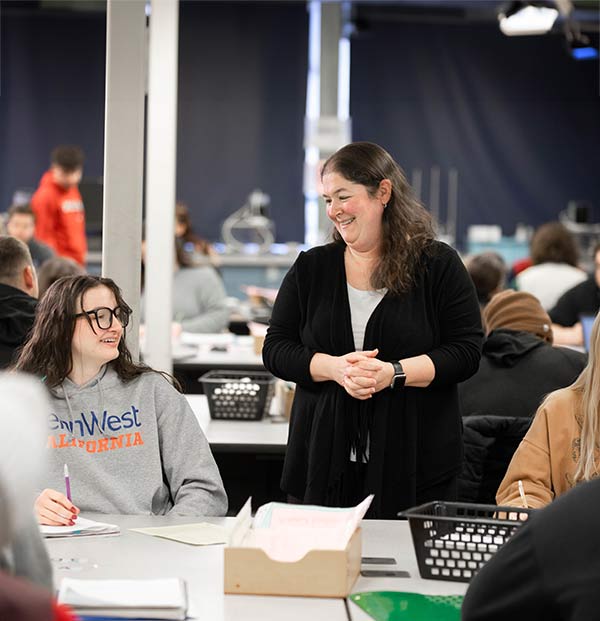Dr. Kimberly Woznack
Breaking Barriers in Chemistry
Distinguished chemistry professor who broke barriers for women in STEM and now guides
PennWest students from novice researchers to confident scientific presenters.
Dr. Kimberly Woznack
Breaking Barriers in Chemistry
Distinguished chemistry professor who broke barriers for women in STEM and now guides PennWest students from novice researchers to confident scientific presenters.


"The students are really doing a fantastic job of not just doing the lab work, but
also getting the experience of presenting that work to the world and describing the importance
of what they did."
Childhood curiosity and meaningful mentorship launched Dr. Kimberly Woznack's journey to becoming a distinguished professor in the chemistry and physics department at PennWest.
"I was a kind of a curious kid, and I really liked science and math," says Woznack, who initially wasn't sure which scientific path to pursue. That changed during her undergraduate years when she discovered chemistry's fundamental nature. "When I took chemistry, I realized that everything is made out of atoms, and I think that just really blew my mind," she recalls. "I could describe every single thing that I touched throughout the day as being made up of one atom from somewhere on the periodic table."
A pivotal moment came during her senior year when she encountered her first female chemistry professor. "That was really where I kind of thought to myself for the first time ever, like, that seems like a really cool job. I could do what she does. I'm not sure I would have thought of that if I only had male professors."
Today, Woznack is both a respected inorganic chemist and a passionate advocate for women in STEM, having served as chair of the American Chemical Society's Women Chemists Committee. She's also shared her experiences balancing motherhood with an academic career in the book "Mom, the Chemistry Professor."
Like many PennWest faculty, Woznack values the transformative journey students experience. "I love being a faculty member because I get to watch our students do that all the time and fondly remember my experience going through that life transition from being a student perceived as a novice to someone who's now an expert in something."
Her advice to prospective students echoes her own path: "Ask a lot of questions and don't be afraid that asking a question will negatively reflect your level of intelligence," she emphasizes. "That's the best way to expand your knowledge - to define what you're missing."
At PennWest California, Woznack helps chemistry students not only master laboratory
techniques but also present their research at national conferences. "The students
are really doing a fantastic job of not just doing the lab work, but also getting
the experience of presenting that work to the world and describing the importance
of what they did."